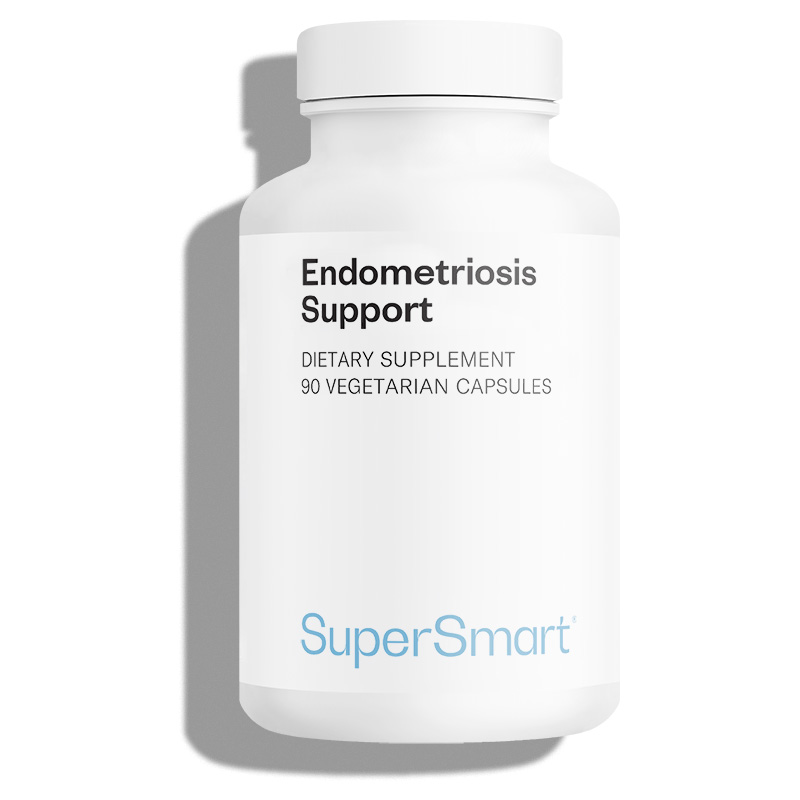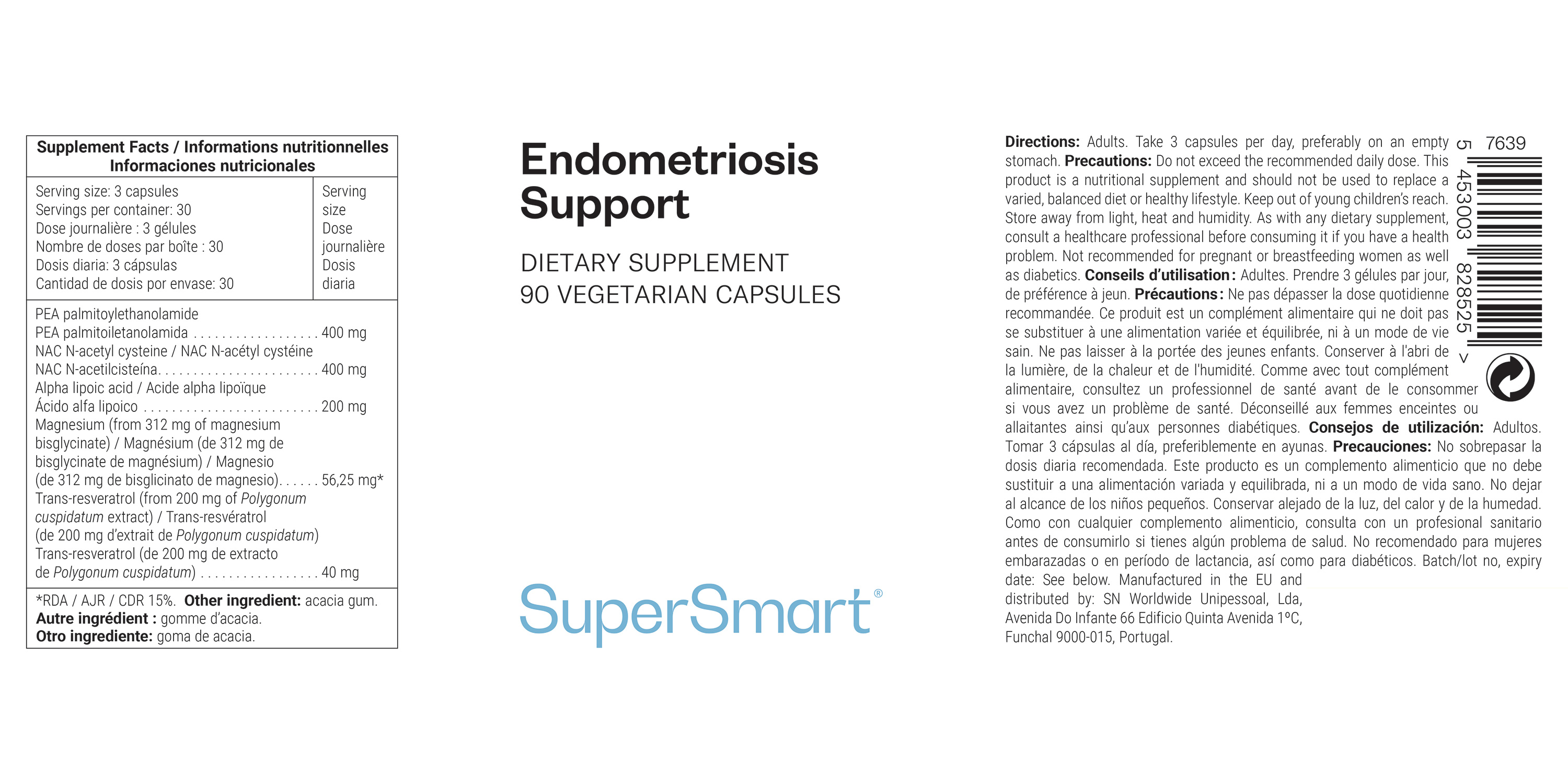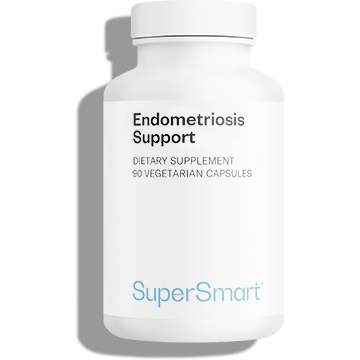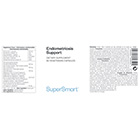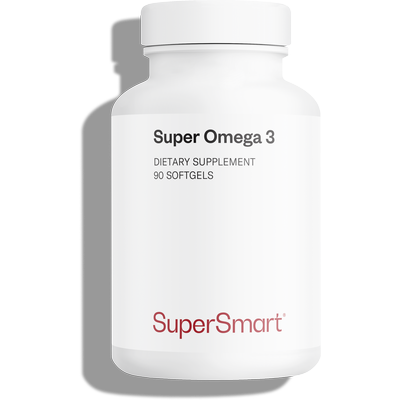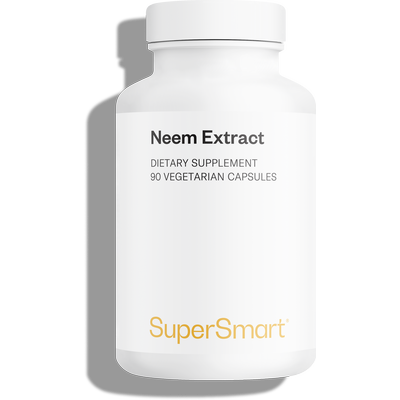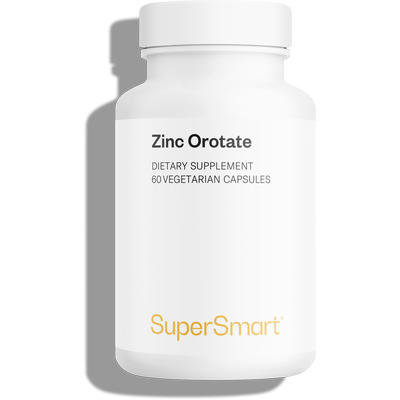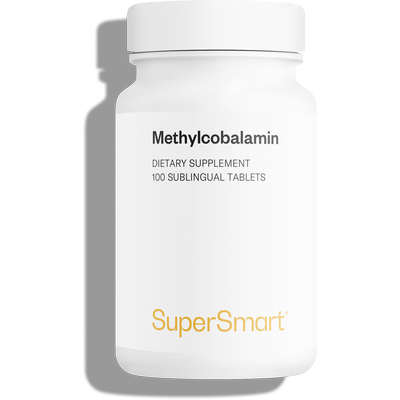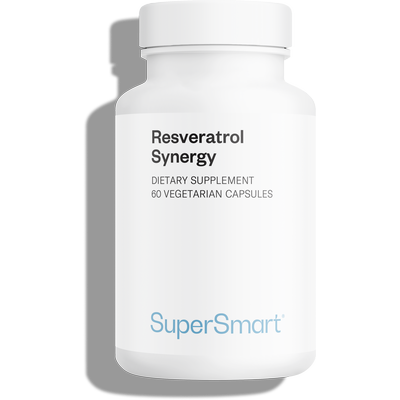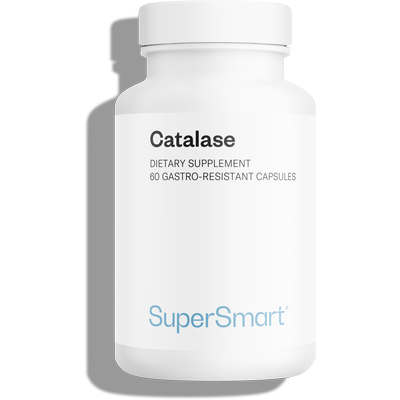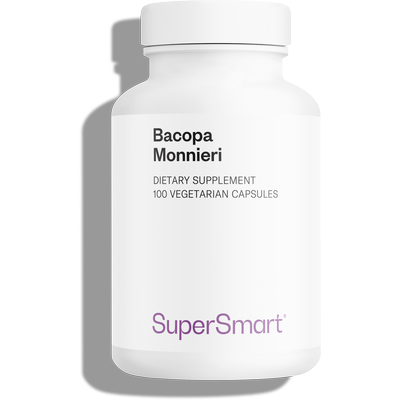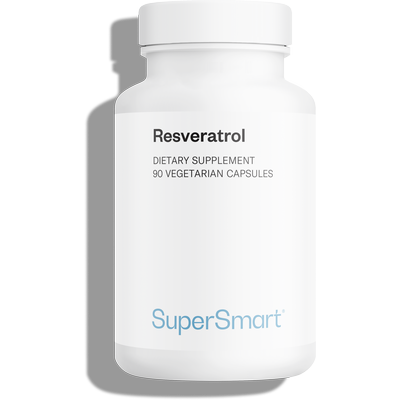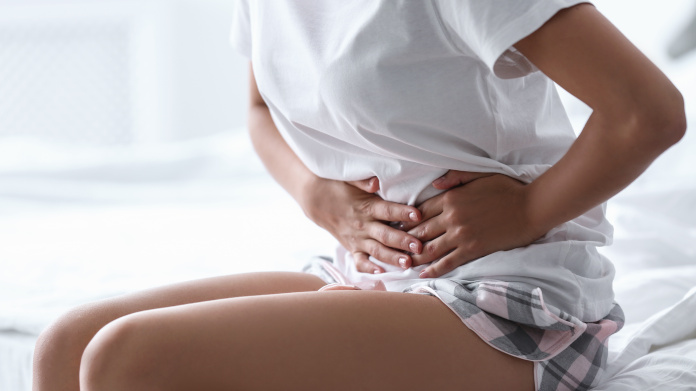Limited quantity
Endometriosis Support
Dietary supplement for endometriosis, effective and hormone-free
Complete your selection
Endometriosis Support is a dietary supplement designed to support women in managing their endometriosis.
Hormone-free, it contains only ingredients which scientific studies show have the potential to reduce endometriosis and its symptoms.
This supplement is part of our menstrual cycle product category.
Composition and benefits of this supplement for endometriosis
Endometriosis: definition & symptoms
Before describing the ingredients in the product, let’s briefly restate that endometriosis is a gynaecological condition characterised by the abnormal proliferation of endometrium-like tissue (tissue similar to the lining of the uterus) outside of the uterus.
This phenomenon, the cause of which is poorly understood, can cause a range of symptoms: inflammation, intestinal problems, and intense pain (during a period, the excess tissue reacts to menstrual hormones and bleeds, but unlike a period, this blood has no way of escaping, leading to the formation of cysts, lesions, etc.,) and even fertility problems.
Benefits of the five ingredients in this hormone-free supplement
Endometriosis Support contains five ingredients carefully selected for their potential benefits against endometriosis:
- palmitoylethanolamide (PEA): PEA is a fatty acid derivative naturally produced by the body’s cells to reduce inflammation (1). A meta-analysis of 4 studies showed promising effects from the administration of PEA in cases of endometriosis-induced pain (2);
- N-acetylcysteine (NAC): NAC is a synthetic derivative of cysteine with greater stability and absorbability than cysteine itself. In vitro studies have shown NAC to have an antiproliferative action, which is particularly relevant in cases of endometriosis (3). Meanwhile animal studies have shown NAC produces a significant reduction in the average size of lesions (4). Researchers have also observed a decrease in the size of endometriomas (painful cysts) in NAC-supplemented women and believe this compound can help combat ovarian endometriosis and prevent its recurrence (5);
- alpha-lipoic acid (ALA): ALA is an antioxidant organosulfur compound, small amounts of which are produced naturally by the body. Animal and human studies on subjects with endometriosis have suggested that supplementation with alpha-lipoic acid can reduce oxidative stress, decrease the volume of endometrial implants (6) and alleviate the pain associated with endometriosis (painful periods (dysmenorrhea), pain related to sexual intercourse (dyspareunia), mild to severe pelvic pain, etc.) (7);
- magnesium bisglycinate: magnesium supports normal muscle function which can help regulate spasms, cramps and contractions. This mineral relaxes smooth muscles, which is thought to reduce retrograde menstruation (the return of menstrual blood containing fragments of endometrial cells flows back into the pelvic cavity, a potential cause of endometriosis). It is also involved in the normal functioning of the nervous system, potentially inhibiting nerve hyperexcitability, and helping to reduce the fatigue often caused by endometriosis. This mineral is also being studied for its potential to restrict angiogenesis (the formation of new blood vessels, a process that can aggravate endometriotic lesions) (8);
- trans-resveratrol from Japanese knotweed: trans-resveratrol is the most active form of resveratrol, a polyphenol found in grapes, blackberries and especially Japanese knotweed (Polygonum cuspidatum). Resveratrol is being studied for its potential anti-inflammatory, anti-angiogenesis and antioxidant benefits in the context of endometriosis (9-12). An in vitro study has also shown that resveratrol can induce apoptosis (programmed cell death) of endometrial cells, thereby helping to reduce lesions (13).
The five key strengths of this natural solution for combatting endometriosis
Endometriosis Support, a major nutritional ally in fighting endometriosis, is notable in five key aspects:
- its scientifically supported synergy: the efficacy of the compounds in this product has been tested in studies on endometriosis. You can take it, with the approval of your gynaecologist, as an adjunct to conventional medical treatment. The composition of Endometriosis Support makes it suitable for long term use, with the minimum side effects possible;
- its highly bioavailable forms: we have selected the best forms available for each of our ingredients. Trans-resveratrol, for example, is the most stable and bio-assimilable form of resveratrol. Similarly, magnesium bisglycinate is known for being both easily used by cells and better tolerated by the digestive system;
- optimal dosage: all the ingredients are present in doses that are both powerful and safe;
- its absence of hormones: unlike many dietary supplements for endometriosis which use plants containing phytohormones such as chasteberry (Agnus castus), our suppement deliberately contains no added hormones (neither synthetic nor phytohormones) to avoid upsetting the hormonal balance, which is often already fragile in people suffering from endometriosis;
- its natural form of delivery: Endometriosis Support comes in the form of vegetarian capsules. The only excipient, acacia gum, is a totally natural ingredient.
What is in Endometriosis Support
Any questions?
To date, there is no definitive cure for endometriosis.
However, hormone therapy, surgery and/or some natural treatments can, depending on the case, slow down the disease’s progression for several years and/or reduce its symptoms.
Though we don’t yet know how to eliminate endometriosis, the treatments generally on offer are:
- Taking hormonal medications that cause periods to stop (amenorrhea), and therefore stop bleeding from lesions. GnRH antagonists, for example, are used to reduce oestrogen production and stop menstruation. Their side effects can be mitigated by add-back therapy which reintroduces, at a certain point, low doses of oestrogen into the body;
- analgesic drugs, potentially combined with non-drug therapies (acupuncture, yoga, etc.,) to reduce pain;
- surgery aimed at destroying or removing endometriotic lesions;
- psychological support.
In the case of symptom-free endometriosis, medical treatments or surgery are not necessarily required. You may simply be offered monitoring to keep track of how the condition develops.
Women suffering from endometriosis are also advised to adopt a diet rich in anti-inflammatory foods (fruit and vegetables, sources of omega-3 and fibre).
Several different elements can exacerbate the disease and its symptoms:
- hormonal imbalances, especially an excess of oestrogen which can stimulate the growth of endometriotic lesions;
- chronic inflammation;
- stress and a sedentary lifestyle, both of which are pro-inflammatory;
- nutritional deficiencies in magnesium, antioxidants, vitamin D, omega-3;
- etc.
In addition, women affected by endometriosis should avoid foods with the potential to increase inflammation:
- those high in sugar (pastries, soft drinks, sweetened processed cereals...);
- those high in saturated fats (steak, sausages, chips, doughnuts...);
- dairy products (milk, cream, high-fat cheeses...);
- those high in gluten (wheat-based bread, pasta and biscuits ...);
- ultra-processed foods (ready-made meals, crisps, shop-bought mayonnaise ...);
- alcohol and caffeine;
- etc.
In cases of endometriosis, therapists often recommend taking omega-3s, renowned for their potential anti-inflammatory effects. These polyunsaturated fatty acids are found in fish, almonds, flaxseed, etc., or in larger quantities in omega-3 supplements (such as Super Omega 3, the purest, most stable product of its kind on the market).
Stress is also an important factor to take into account. Stress can increase the symptoms of endometriosis by heightening pain perception and causing hormonal imbalances. Take advantage of the relaxing benefits of an adaptogen plant widely used in Ayurveda, ashwagandha, available in anti-stress and anti-anxiety supplements (such as the organically-produced Super Ashwagandha).
Alongside Endometriosis Formula, it also makes sense to take care of your vaginal flora, another important aspect of gynaecological health. Eat probiotic-rich foods (natural yoghurt, kefir, kimchi, etc.) or opt for a specific probiotic formulation (such as Vaginal Health, which combines five probiotic species tested on vaginal health).

